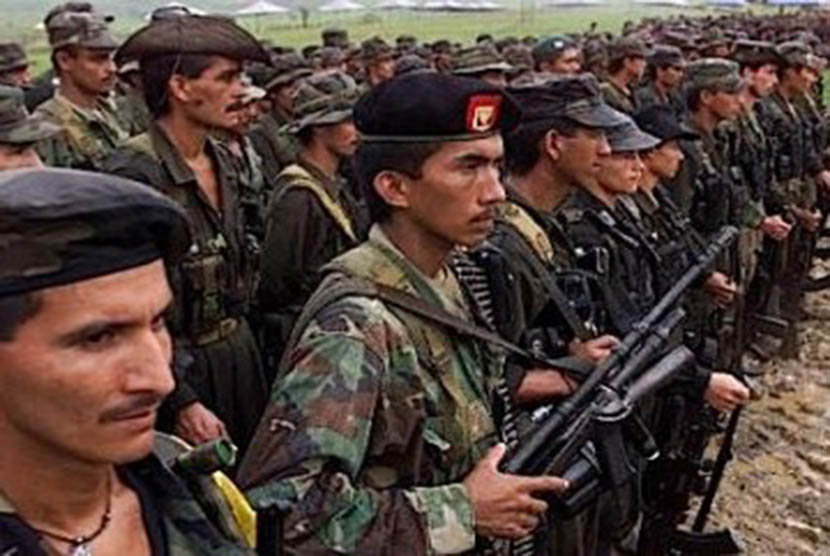REPUBLIKA.CO.ID, JUNGLES OF PUTUMAYO -- One of Colombia's most-grizzled and important rebel fighters is calling on President Barack Obama to do more to support peace and to free a guerrilla leader jailed for more than a decade in the United States.
Speaking amid the trees of his jungle hideout in southern Colombia, the guerrilla commander known by the alias Martin Corena said such a move would be the best way for the Obama administration to back with actions its public support for an approaching deal to end decades of bloody fighting.
"There have been a lot of statements and verbal demonstrations of support, but in practice, up to now, the support of the United States hasn't been viable and hasn't become real," Corena, relishing his first real break from fighting in more than 30 years with Latin America's largest insurgency, told The Associated Press.
Despite the calm, the soft-spoken commander wore a vest packed with two automatic pistols and multiple rounds, slung over a Barcelona soccer jersey.
The Revolutionary Armed Forces of Colombia, or FARC, considers Ricardo Palmera to be a prisoner of war and has long insisted he be released as a condition for signing a peace accord. But the Obama administration has steadfastly refused, arguing that the negotiating table is no place to discuss Palmera's 60-year sentence in connection with the kidnapping of three American defense contractors.
In a weeklong visit to four different FARC camps, AP journalists saw how guerrillas are preparing for a peace deal that both sides say could be just weeks away. The rebels agreed to receive the journalists on condition they not reveal the camp's precise location, citing security concerns.
For more than a year, after the FARC declared a unilateral cease-fire and President Juan Manuel Santos reciprocated by suspending aerial bombings, the rebels have been able to relax and become almost sedentary for the first time in decades. Instead of training for combat, they spend their days harvesting pineapples planted months earlier, staging plays on social issues and even watching Colombian athletes compete at the Rio Olympics via clandestine satellite dishes.
As acting leader of the FARC's southern bloc in place of Joaquin Gomez, who has relocated to Havana for ongoing peace talks there, Corena oversees hundreds of troops belonging to one of the rebel army's oldest and most belligerent fighting units. The bloc has been behind some of the FARC's biggest military coups, including the 2002 capture of former presidential candidate Ingrid Betancourt.
When Corena addresses the more than 50 guerrillas in his camp, it's usually to promote the peace accords which he learned about firsthand during a recent visit to Cuba. About the only sign of their fighting past is the daily 4 a.m. roll call in armed formation that begins with a guerrilla's imitation of a bird song.
While the FARC is more open than ever as peace nears and has relaxed its normally tight security protocols, the rebels remain isolated. Reaching their camps required two boat journeys along remote rivers where there's no state presence. Dogs and chickens wander the camp and fighters wear rubber boots against the mud.
Rebel leaders have publicly praised U.S. support for the peace talks and even met with Secretary of State John Kerry during Obama's historic trip to Havana in March, but many remain deeply mistrustful of Washington, which considers the FARC a terrorist organization and has indicted its top leadership on charges of supplying more than half the world's cocaine.


